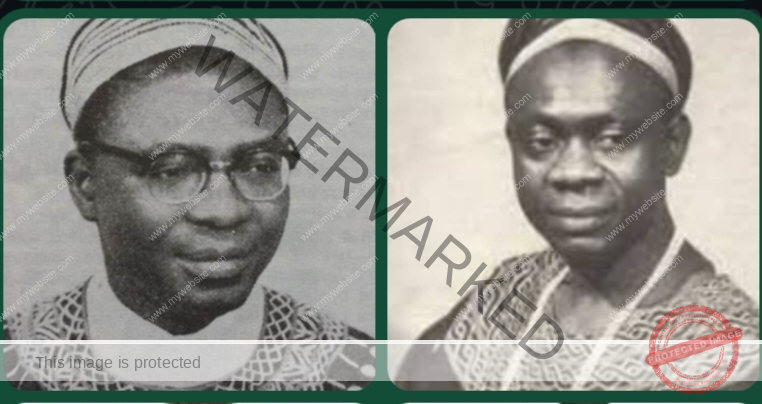Despite Endeley’s stature, the ballot box determined the outcome, and power was transferred peacefully to Foncha in Buea. That moment showed that genuine democracy was possible in Africa.
By Dr. Louis Mbua
The Current Paradox-The political paradox in La République du Cameroun (LRC) is glaring: why hold elections with Monsieur Paul Biya, a man approaching 100 years of age, who has remained largely invisible for decades, residing mostly in private lodges, hotels, and villages, yet still occupying the presidential seat? Under such circumstances, the very act of preparing for elections appears less a democratic exercise than a ritual of self-deception.
Historical Contrast: The Peaceful Change of 1959 in the Southern Cameroons
To appreciate the strangeness of today’s situation, one must recall the historical dignity of 1959. In the then British-administered Southern Cameroons, a peaceful and democratic change of government occurred when John Ngu Foncha’s Kamerun National Democratic Party (KNDP) defeated Dr. Emmanuel Endeley’s more intellectually esteemed Cameroon National Congress (CNC).
Despite Endeley’s stature, the ballot box determined the outcome, and power was transferred peacefully to Foncha in Buea. That moment showed that genuine democracy was possible in Africa. It was not flawless, but it was real. Moreover, it proved that elections could be meaningful—that the will of the people could indeed alter governance. Dr. Endeley, a towering African political figure and the first Prime Minister of the Southern Cameroons, respected the people’s choice.
By contrast, the current electoral practice in LRC under Biya lacks such authenticity. It often resembles a predetermined exercise, in which results appear fixed long before ballots are cast, and opposition participation risks serving more as decoration than as true contest.
People Power versus Political Vacuity
The question then arises: if genuine elections are impossible, what alternatives exist? Boycott? Mass “Ghost Town” campaigns across LRC, mirroring the civil disobedience seen in Buea and Bamenda, where silence and non-participation have been wielded as weapons of resistance? Ghost Towns have shown that when people withdraw consent, even without violence, regimes can feel the pressure.
History across Africa also illustrates the potency of people power. In Sudan (2019), mass uprisings ended Omar al-Bashir’s three decades in power. In Burkina Faso (2014), Blaise Compaoré, another entrenched “life president,” was forced out by popular protests. Ghana earlier showcased democratic resilience, inspired by Kwame Nkrumah’s insistence on self-determination, though later disrupted by external interference. These examples remind us that entrenched regimes, however fortified, are not immune to united citizen action.
The irony is stark: if such movements could succeed against hardened autocrats and military rulers, why should a nearly centenarian leader, largely absent from public life, remain immovable in Yaoundé?
The Problem of Speeches
Yet, the opposition seems more invested in eloquence than in mobilization. Maurice Kamto, articulate and persuasive, continues to address audiences, often through social media. But speeches, by themselves, do not deliver liberation. As Frantz Fanon warned in The Wretched of the Earth, postcolonial elites often substitute rhetoric for transformation, mistaking polished words for substantive change.
Political challenges of this magnitude cannot be solved by speeches alone. They demand strategy, sacrifice, courage, coordination, and mass mobilisation—of the sort Southern Cameroonians have attempted through sustained civil resistance.
Elections Without Democracy
The elections being prepared under Monsieur Biya risk continuing a familiar pattern: a republic that pretends to vote while its president pretends to govern. The lesson from 1959 in Buea remains relevant: democracy is only real when elections reflect the genuine will of the people, not when they are reduced to hollow rituals.
This is precisely why Dr. Samuel Ikome Sako, President of the Federal Republic of Southern Cameroons Ambazonia in Exile, has made it clear that Ambazonians will not participate in any elections organised by LRC. His position is grounded not only in political strategy but also in international law:
UN General Assembly Resolution 1608 (XV) of 1961 recognised the distinct status of the Southern Cameroons as a United Nations Trust Territory and called for a clear settlement of its sovereignty. That settlement was never lawfully completed.
Article 76(b) of the UN Charter explicitly provides that trust territories exist to promote self-government or independence. This principle was violated when Southern Cameroons was annexed without a treaty of union.
The right of peoples to self-determination, enshrined in Article 1 of both the UN Charter and the International Covenants on Human Rights (1966), remains the legal foundation for Ambazonia’s resistance.
For Dr. Sako, therefore, participation in LRC’s elections would amount to legitimising annexation and erasing international obligations that protect Ambazonia’s right to exist as a people and as a state. Abstention, combined with civil resistance, affirms the Ambazonian claim to self-determination under international law.
Until LRC moves beyond political theatre and embraces either true democratic reform, strategic boycotts, or people-powered transformation, the cycle will persist. And as long as opposition leaders remain satisfied with speeches rather than mobilization, the political stage will remain set for Africa’s longest-running performance—presided over by a leader who has outlived politics but refuses to leave the throne.
Dr. Louis Mbua

